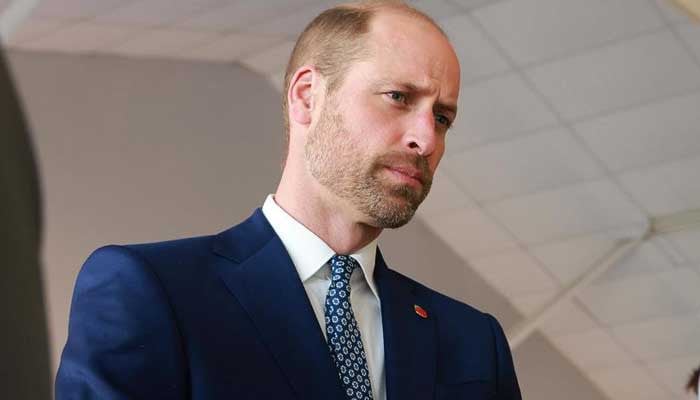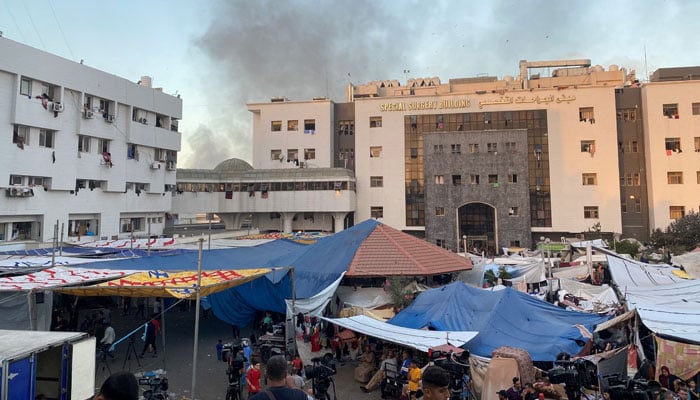Sports
Steep price
字号+ Author:Smart News Source:Business 2025-01-15 13:37:13 I want to comment(0)
THE Hindu Kush-Himalayan region is in big trouble. A new study unveiled at the ongoing COP29 reveals that if high emissions continue, up to 80pc of the region’s ice could disappear, endangering the very survival of nearly a quarter of humanity that depend on it for water, food and ecosystem stability. The urgency of the matter cannot be overstated. Over the past decade, glacier melting has accelerated by 65pc compared to 2000-2010. This rapid rate of deterioration means we may soon hit the point of no return. It could have devastating implications: a rise in glacial lake outburst floods, disruptions in agricultural patterns, and compromised water security for billions. While regional cooperation, as advocated by Pakistan and other Hindu Kush nations at Baku, is crucial, the situation begs a global response. The developed world’s role is vital on three fronts. First, immediate and substantial emission reductions are non-negotiable. The State of Cryosphere 2024 report demands emergency-scale action to cut emissions by 40pc by 2030 — a target that primarily falls on the world’s largest emitters to achieve. Second, climate finance must flow more generously and equitably. As Prime Minister Shehbaz Sharif emphasised at COP29, this assistance must be grant-based rather than loan-based, ensuring vulnerable nations are not forced to choose between climate action and economic stability. The current system of climate finance, often entangling developing nations in debt, needs urgent reform. Third, technology transfer and capacity building must accelerate. The report indicates that with very low emissions, up to 40pc of glacier ice could be preserved, with some regions even showing potential regeneration beyond 2100. Achieving this requires developed nations to share green technologies and expertise more freely with affected regions. The current trajectory, where Nationally Determined Contributions would lead to a 2.3°C temperature rise by 2100, falls dangerously short. This path would trigger irreversible cryosphere changes, destabilising water cycles and threatening food security across the entire region. The solution lies in strict adherence to the Paris Agreement’s 1.5°C target through immediate, coordinated action. Time is running out, and every fraction of a degree matters. If wealthy nations fail to act decisively now, the world will bear witness to irrevocable change in an ecological region of critical importance. The consequences will reverberate for centuries to come.
1.This site adheres to industry standards, and any reposted articles will clearly indicate the author and source;
 Related Articles
Related Articles-
London court finds father, stepmother guilty in 10-year-old Sarah Sharif’s murder
2025-01-15 13:23
-
Viola Davis moves to tears at Golden Globes awards
2025-01-15 13:00
-
Jennifer Aniston opens up about difficulties filming ‘The Morning Show’
2025-01-15 12:35
-
Meghan Markle’s estranged dad makes final plea as he takes life-changing step
2025-01-15 11:14
 User Reviews
User Reviews Recommended Reads
Recommended Reads Hot Information
Hot Information- Pakistani nationals are safe in Syria, says FO
- Queen Camilla, Kate Middleton slam Meghan Markle's claims as she returns
- Taylor Swift to skip Travis Kelce’s final NFL game?
- Taylor Swift, Travis Kelce kicked off 2025 with intimate celebration
- Which Pak Army officer was held responsible for security lapse at Jinnah House during May 9 Attacks? SC Judge asks
- King Charles to give Duchess Sophie good news: ‘recognition she deserves’
- 'Squid Game' stars break silence on BTS's V rumours
- Johnny Depp’s daughter Lily-Rose Depp vows to work ‘Ten Times Harder’
- Thailand introduces online e-visa platform for Pakistan and Afghanistan
 Abont US
Abont US
Follow our WhatasApp account to stay updated with the latest exciting content












